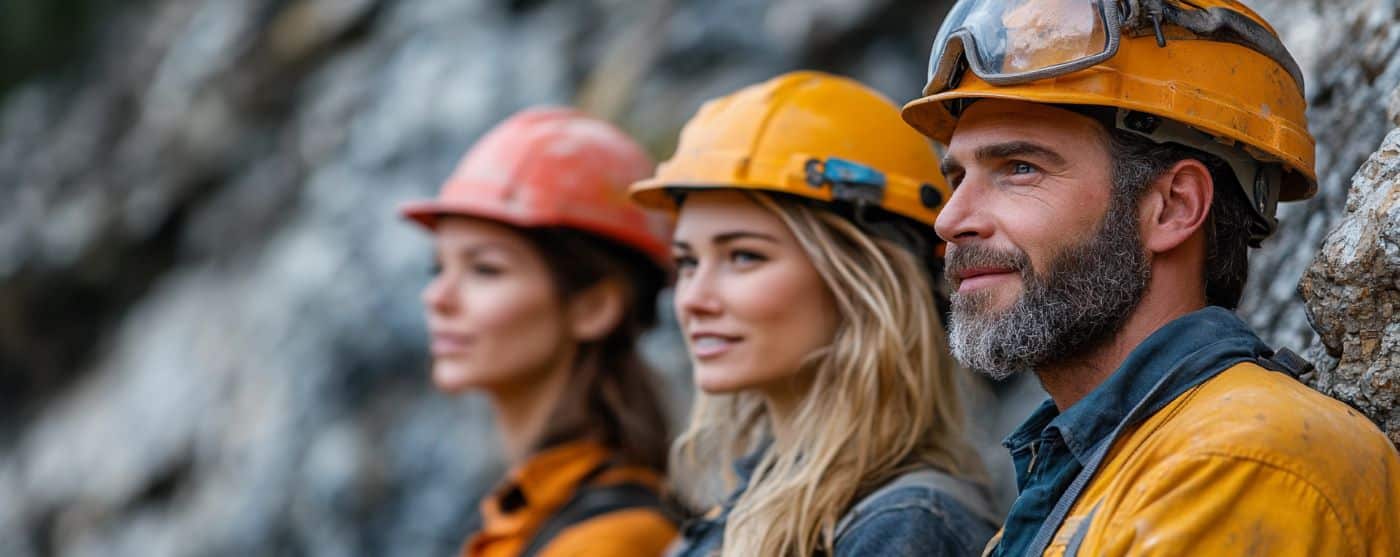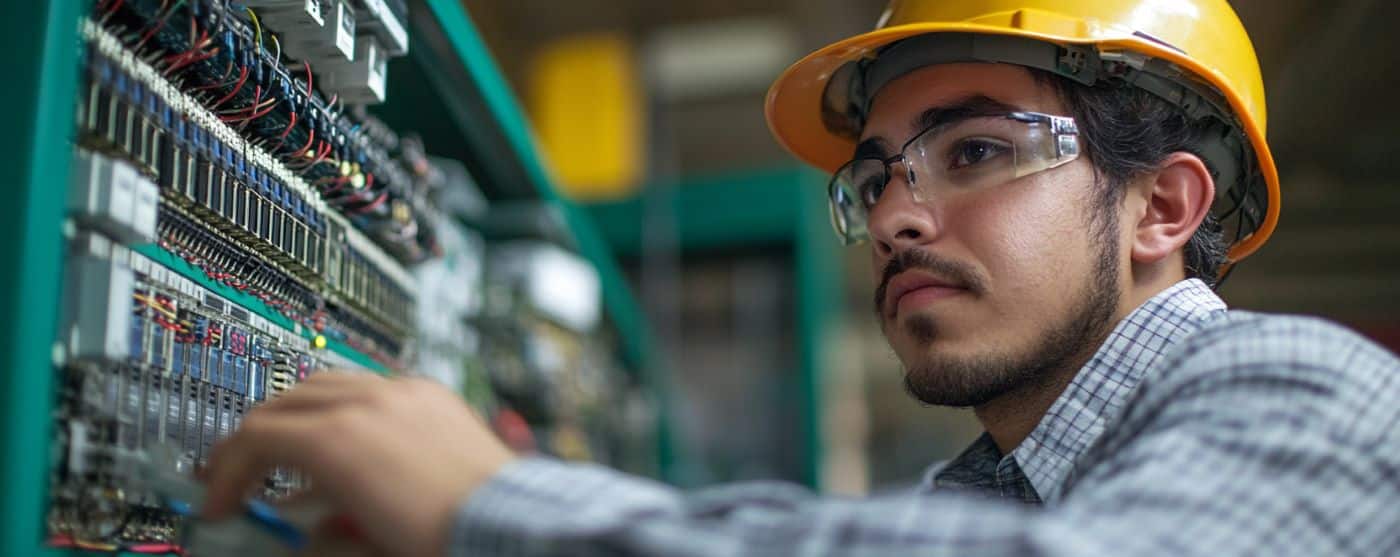
What is Mining and Geological Engineering?
Mining and geological engineering focuses primarily on the study and design of creating safe and effective means to extract metals and minerals for industrial, commercial and scientific purposes. Requiring education and understanding not only of mining principles and practices, engineers in this field are also expected to have an advanced and dynamic understanding of geological sciences, such as soil and mineral composition, surveying, prospecting and exploratory geological research. In addition to extracting the more conventional materials such as oil, precious and industrial metals and rarer gems and materials, many new advancements in information technology have expanded the role of geological engineering to search and mine for other materials, such as the dozens of special minerals and materials used in computer, tablet and smart phone construction.
At EducatingEngineers, we want you to understand the complexities of engineering careers and what it takes to succeed in your education. Please read the information below to learn more. And contact the schools in our directory to get started!Working in the field
Employed by governments, major corporations, non-profit organizations and scientific/academic research institutions, geological engineers play pivotal roles in everything from industrial production of materials and energy, to advancing scientific understanding of the material composition of the Earth. Because of the numerous and varied functions for geological engineering and the substantial technological advancements made in the field itself, the role of the engineer in respect to mining and geological research continues to evolve, finding new and interesting applications for the science with each passing year.
Education Requirements
Requiring a minimum of a bachelor’s degree from an accredited college or university, the licensing requirements for geological and mining engineering vary by state. Specific degree programs for aspiring geological and mine engineers include Geology, Geophysics, Geological Engineering, Mining Engineering, Mineral Preparation Engineering and Social Geology, among many others, and range from undergraduate Bachelors programs to advanced graduate and post-graduate programs. In addition to materials mining and extraction, additional studies and industry focuses include ecological impact research, which measures broader environmental and ecological effects of mining operations, social geological impact research which focuses on both the sociological hazards and benefits to geological or mining efforts and discovery oriented exploration, studying geological formations below the Earth’s surface so as to refine the broader understanding of the planet’s composition. Regulated by the Mine Safety and Health Administration (MSHA,) the field of geological and mine engineering is one with an intense focus on hazard awareness and occupational safety.
A Degree That Offers A Lifetime of Learning
As with any dynamic and engaging field of study, the geological, mineral and mining industries and sciences, the training and education continues well after one has earned their degree. With numerous trade associations, professional networks and academic research societies, such as the American Institute of Professional Geology (AIPG,) American Rock Mechanics Association (ARMA,) and Association of Environmental and Engineering Geologists (AEG,) the field of geological and mine engineering is one of a continually evolving nature, with regular conferences and training programs designed to keep geological professionals on the cutting edge of their chosen pursuits. Combining age old techniques in respect to surveying, exploration and extraction, new technologies continue to emerge in the field, bringing new and exciting methods of research and exploratory prospecting into the hands of professionals and students every year. And as these new technologies and discoveries continue to change the professional landscape for those entering the engineering fields of geology or mining, the increasing demands for raw and precious materials by industry and the public at large have led to an increased demand for well educated, qualified professionals to enter the fields.
Salary and Career Outlook
According to the US Bureau of Labor Statistics (BLS,) “employment of mining and geological engineers is projected to grow 12 percent from 2012 to 2022,” which according to their data puts it on par with most other occupations in terms of projected growth. With the average salary for mine and geological engineering professionals being reported at $86,870 annually (or $41.76 hourly) as of 2013, the range between the lowest and highest paid percentages of the industrial professionals was between approximately $49,000 and $140,000 depending upon industrial focus, employer, position and experience.
A recent 2013 BLS study found that in regards to median salary, differences in respect to specific location also existed. In the metropolitan area of Huston Texas, the annual mean average for geological and mining engineers, including health and safety professionals, was $147,880, with the same occupations earning between $118,450 and $121,350 in the Bakersfield and Oakland California markets, respectively. These salaries, when compared to the $84,140 mean of the St. Louis metropolitan market and the $69,970 measured in the Colorado Springs market, show that sometimes drastic disparities exist in respect to salary, dependent upon location and industrial focus.
A Real-World Example of Success in Engineering…
The working and academic lives of a mining and geological engineer is one of constant problem solving, exploration, attention to detail and communication. As one of, if not the primary coordinator for digging and mining operations, the engineer is charged with the planning, logistics, safety assurance and contingency/emergency management of their projects. In addition to the technical engineering skills required for the surveying, planning, digging and extraction or study of materials, the project engineers are quite often also required to maintain strong lines of communication with the crews of professional miners or students they are working with. As such, and especially in respect to safety or emergency management, the numbers of women entering the fields has been steadily increasing.
Former University of Arizona mining student and captain of the women’s mine rescue team, Allison Hagerman was interviewed by the school news site UANews.org in 2013, during one of its mining and geological engineering drilling competitions at the school’s San Xavier underground mine. Speaking about her experiences, she highlighted that safety in the field was not only paramount, but also presented a specialization. One which, following her graduation in May of 2013, inspired her to take the reigns as the captain of the women’s rescue team at the San Xavier Mining Laboratory. While talking to UANews about her studies of the mining and geological sciences, Hagerman eagerly pointed out that along with a 100% program graduation rate, her skills and studies allowed her to transition directly out of school into a stable, high paying position in the private sector.
Learn more about becoming a mining and geological engineer today. Contact the schools listed in our directory to learn more about their programs!


